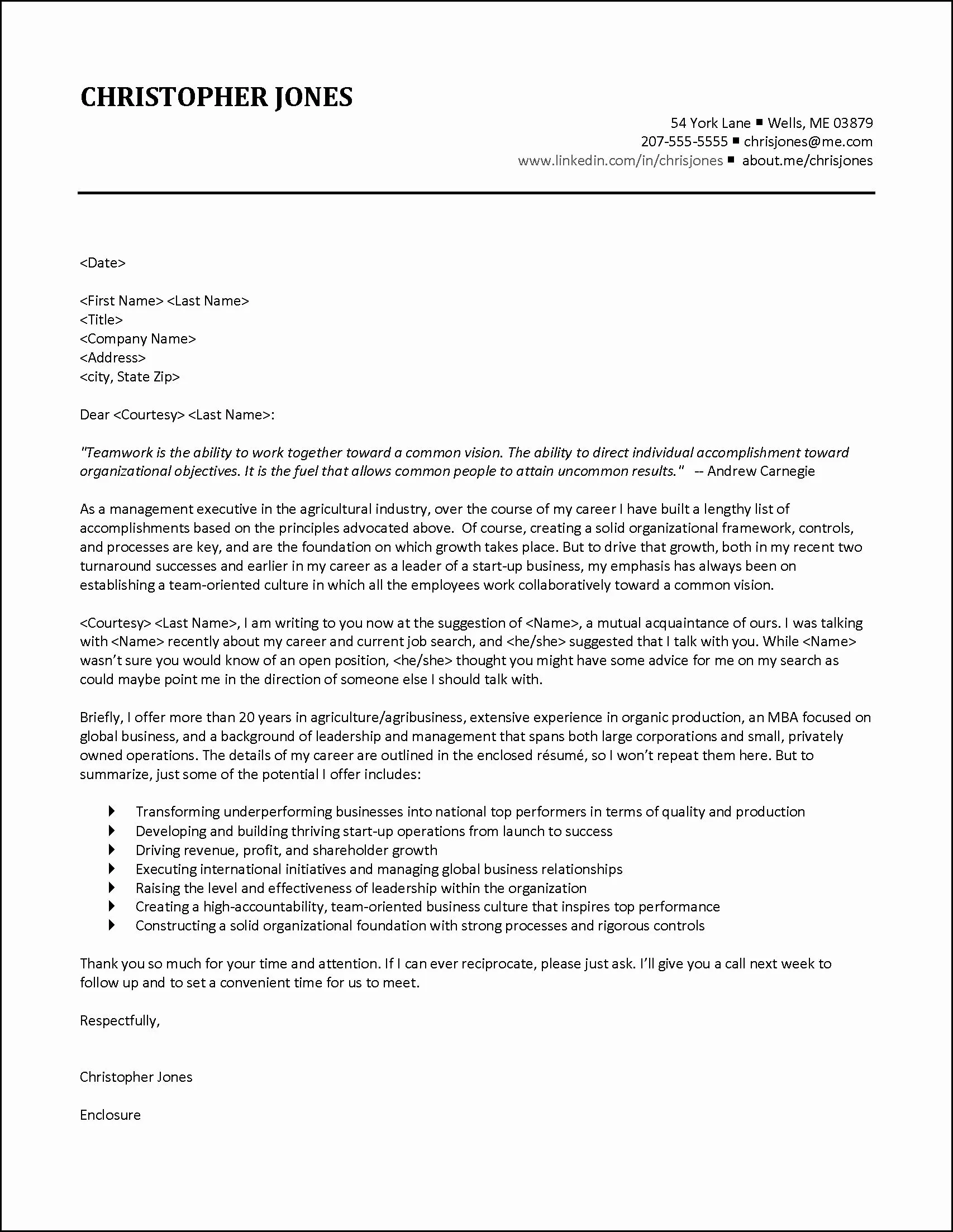Highlighting Your Legal Expertise
Your in-house counsel cover letter is your first opportunity to showcase your legal expertise and make a positive impression. This section focuses on articulating your core competencies and demonstrating your ability to handle complex legal matters. Begin by clearly stating your qualifications and the specific areas of law in which you specialize. This immediately informs the hiring manager about your suitability for the role. Emphasize your understanding of legal principles, regulations, and the ability to apply this knowledge in a practical, business-oriented context. Show how you can proactively identify and mitigate legal risks, provide strategic advice, and support the company’s objectives. Remember, the goal is to prove you are a legal expert.
Demonstrating Relevant Experience
Detail your experience in areas relevant to the job description. This is where you demonstrate your practical application of legal knowledge. Focus on the types of legal work you’ve performed, such as contract drafting and negotiation, litigation management, intellectual property, regulatory compliance, or other specific areas. Provide specific examples of your past responsibilities and the outcomes achieved. For instance, instead of saying you ‘managed contracts,’ describe the volume of contracts you handled, the types of contracts, and any significant improvements or efficiencies you implemented. Also, mention experience with the types of companies you’ve worked for, such as startups, established corporations, or specific industries, highlighting your ability to adapt to different business environments.
Quantifying Achievements
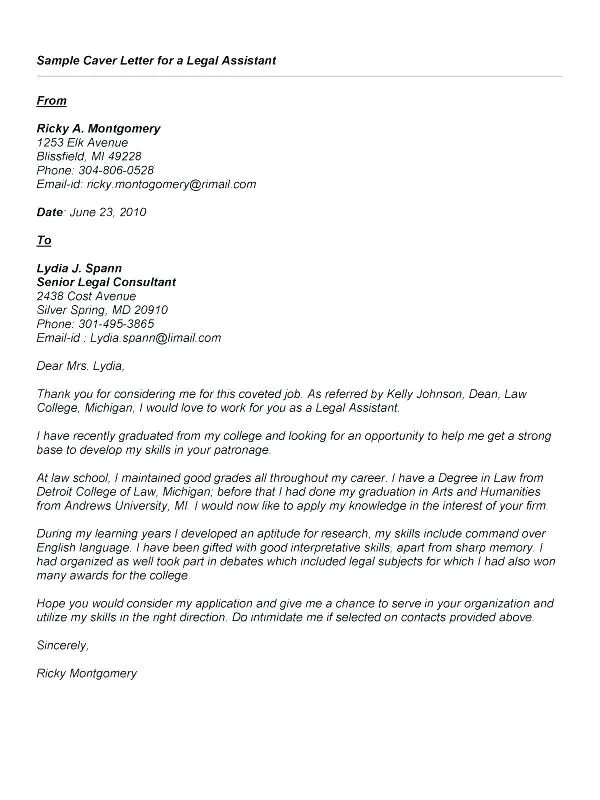
To make your cover letter stand out, quantify your achievements with data-driven results. Instead of just stating your responsibilities, provide specific metrics to demonstrate your impact. For example, if you’ve reduced legal costs, specify the percentage or dollar amount. If you’ve streamlined a process, mention the time saved or efficiency gains. If you’ve successfully resolved disputes, indicate the number of cases, the financial outcomes, and the impact on the company. Also include how you contributed to revenue generation, risk reduction, or enhanced compliance. These metrics provide concrete evidence of your value and ability to deliver tangible results. This is very important and this is what a hiring manager is looking for.
Showcasing Industry Knowledge
Demonstrate your understanding of the industry and the specific challenges and opportunities it presents. Mention your experience with relevant regulations, industry-specific legal issues, and the business landscape. If you’ve worked in a similar industry before, highlight your familiarity with its nuances. Mention any industry-specific certifications, memberships, or publications that showcase your expertise. This demonstrates your commitment to staying current with industry trends and your ability to provide informed legal counsel. Also include the ways you have helped to improve the industry, or provided advice that other legal counsel may not be aware of.
Tailoring to the Company
A generic cover letter will not impress. Tailor your letter specifically to the company and the role. Start by researching the company’s mission, values, and recent news to show you understand their business. The more effort you put into demonstrating your understanding of the company, the better. Your goal is to show that you have what it takes to get the job and will be a good fit to their business environment.
Researching the Company Culture
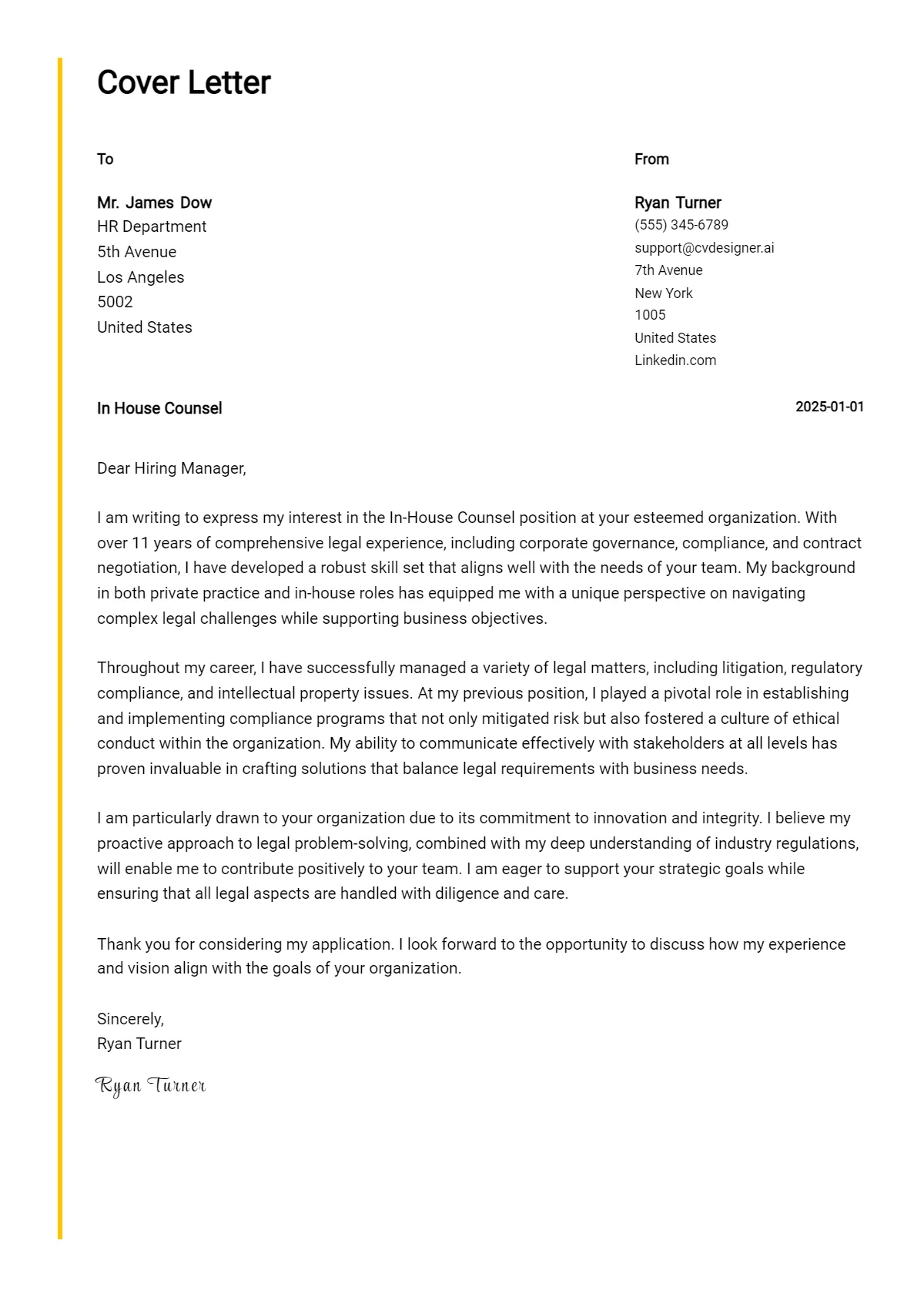
Understand the company’s culture and values by researching their website, social media, and any available information. This will help you align your tone and approach to match their environment. Look for keywords and phrases used in their communications. Identify any initiatives or values that resonate with you. Mentioning specific aspects of their culture demonstrates your interest and shows you’ve done your homework. This includes showing that you would be a good fit for the people that you work with.
Addressing Company Needs
Focus on how you can address the company’s specific needs and challenges. Review the job description carefully and identify the key requirements and responsibilities. Then, highlight your skills and experiences that directly align with these needs. Provide examples of how you have solved similar problems in the past. Explain how your expertise can contribute to their goals and objectives, such as risk management, compliance, or supporting business growth. Use their language and terminology to create a sense of familiarity and relevance, showing that you understand their needs.
Understanding the Role Requirements
Thoroughly review the job description and understand the specific requirements and expectations. Identify the key responsibilities, required skills, and desired qualifications. Then, directly address these points in your cover letter. Provide specific examples from your experience that demonstrate your ability to meet these requirements. If the job description emphasizes certain areas of law or skills, make sure to highlight your experience in those areas. Ensure that you also show what you will offer the company. This is a great way to show the benefits you will bring to the company.
Structuring Your Cover Letter
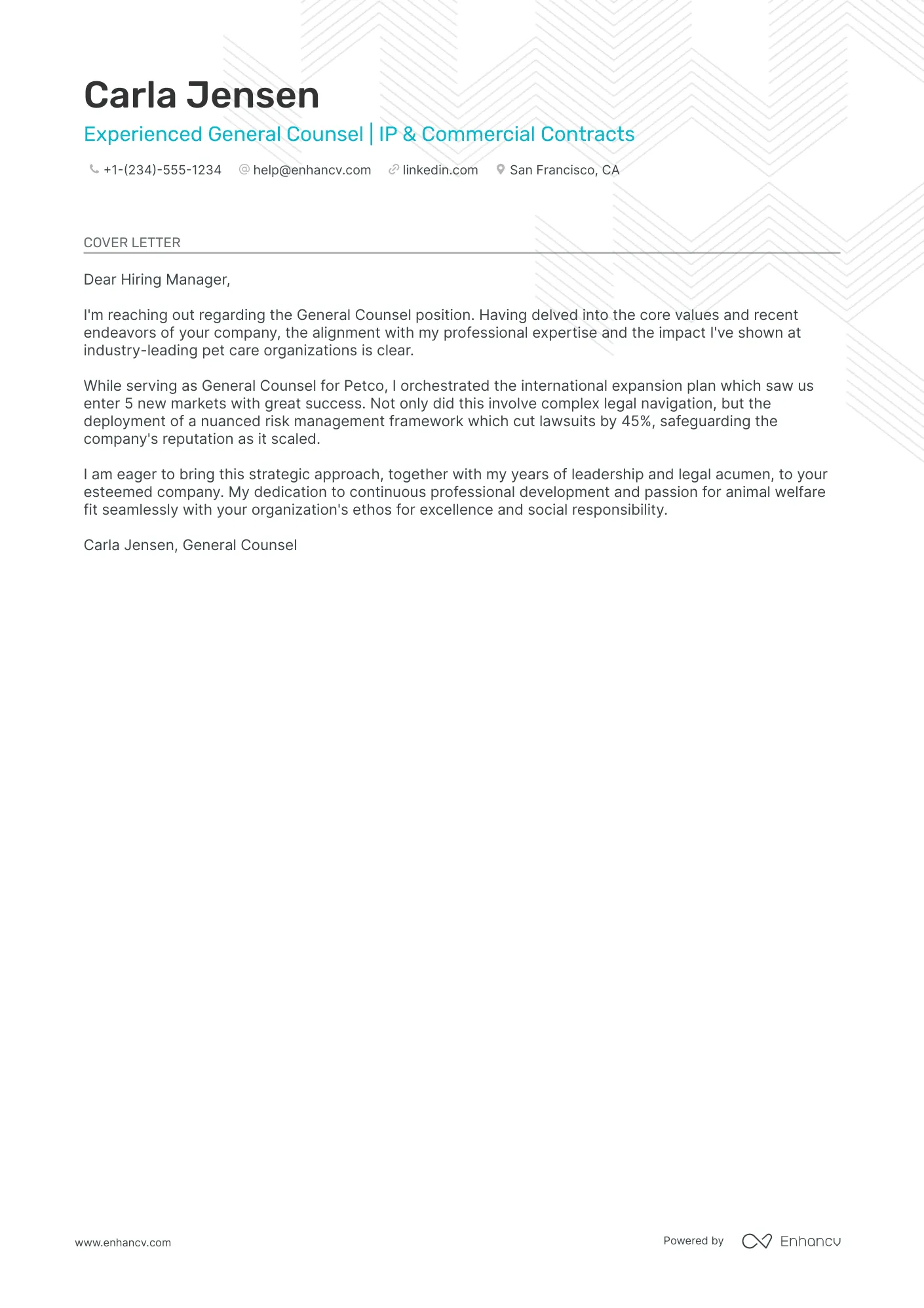
A well-structured cover letter is crucial for conveying your message effectively. Organize your letter into clear, concise sections that highlight your key qualifications and experiences. Use a professional tone and format that is easy to read and understand. Focus on making a clear, concise, and professional cover letter. Do not make it too wordy or difficult to read. The format should be easy to look at and understand.
Crafting a Compelling Introduction
Start with a strong opening that immediately captures the reader’s attention. Clearly state the position you are applying for and where you saw the job posting. Provide a brief, impactful statement that highlights your most relevant qualification or the value you bring. For example, you might mention a significant achievement or a key skill that aligns with the job requirements. Avoid generic greetings or overly formal language. Your introduction should set the tone and make the reader want to continue reading. Make it catchy and make it known that you are the right fit.
Developing Strong Body Paragraphs
The body of your cover letter should expand on your key qualifications and experiences. Each paragraph should focus on a specific skill, experience, or achievement. Use the STAR method (Situation, Task, Action, Result) to provide detailed examples and quantify your accomplishments. For each point, clearly state the situation, the task you were assigned, the actions you took, and the results you achieved. This structured approach provides concrete evidence of your abilities. Use clear language, avoid jargon, and focus on demonstrating the value you bring to the company. Show what you have learned in your field.
Writing a Powerful Conclusion
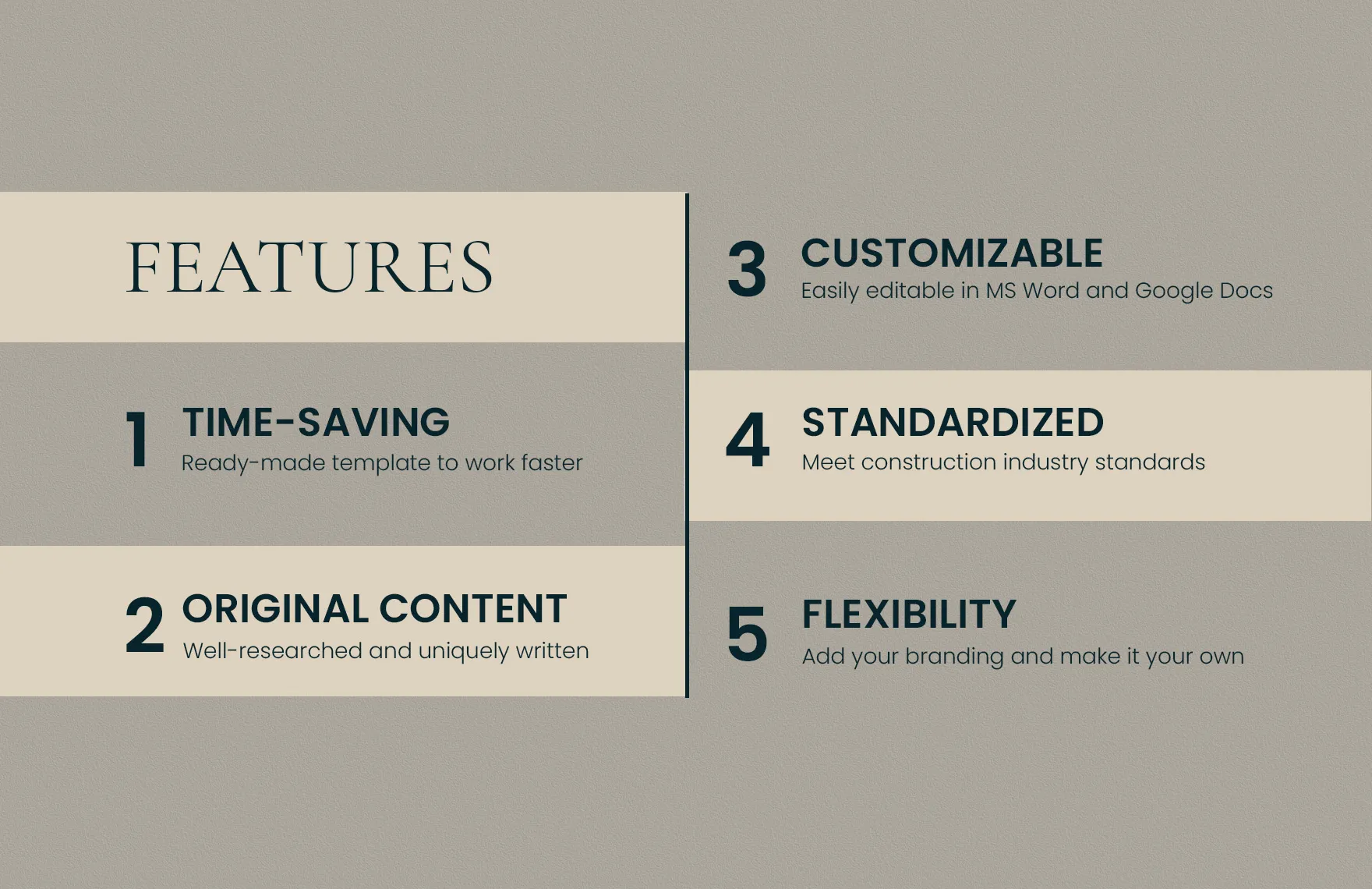
End your cover letter with a strong and memorable conclusion. Reiterate your interest in the position and the company. Summarize your key qualifications and reiterate why you are a good fit. Express your enthusiasm for the opportunity and your desire to discuss your qualifications further in an interview. Thank the hiring manager for their time and consideration. Include a call to action, such as stating that you look forward to hearing from them soon. Ensure a tone that is professional and confident.
Key Phrases and Keywords to Use
Use industry-specific keywords and phrases to show that you understand the role and the company. Research the company and industry to identify key terms used in their communications. Weave these terms naturally throughout your cover letter. This includes legal jargon and technical terms relevant to the job. Avoid using overly generic language. Instead, use terms that specifically relate to the responsibilities and skills mentioned in the job description. This demonstrates your understanding of the role and increases the chances of your application being noticed by applicant tracking systems (ATS) and the hiring manager.
Action Verbs to Include
Start your sentences with strong action verbs to make your cover letter more engaging and impactful. Verbs such as ‘managed’, ’negotiated’, ‘drafted’, ‘advised’, ‘implemented’, ‘reduced’, and ‘streamlined’ show your accomplishments and responsibilities in a dynamic way. Use a variety of action verbs to keep the reader interested. Choose verbs that accurately describe your actions and results, adding energy to your descriptions. Avoid passive voice and focus on active, results-oriented language. This helps to showcase your impact on past projects or the companies you’ve worked with.
Highlighting Soft Skills
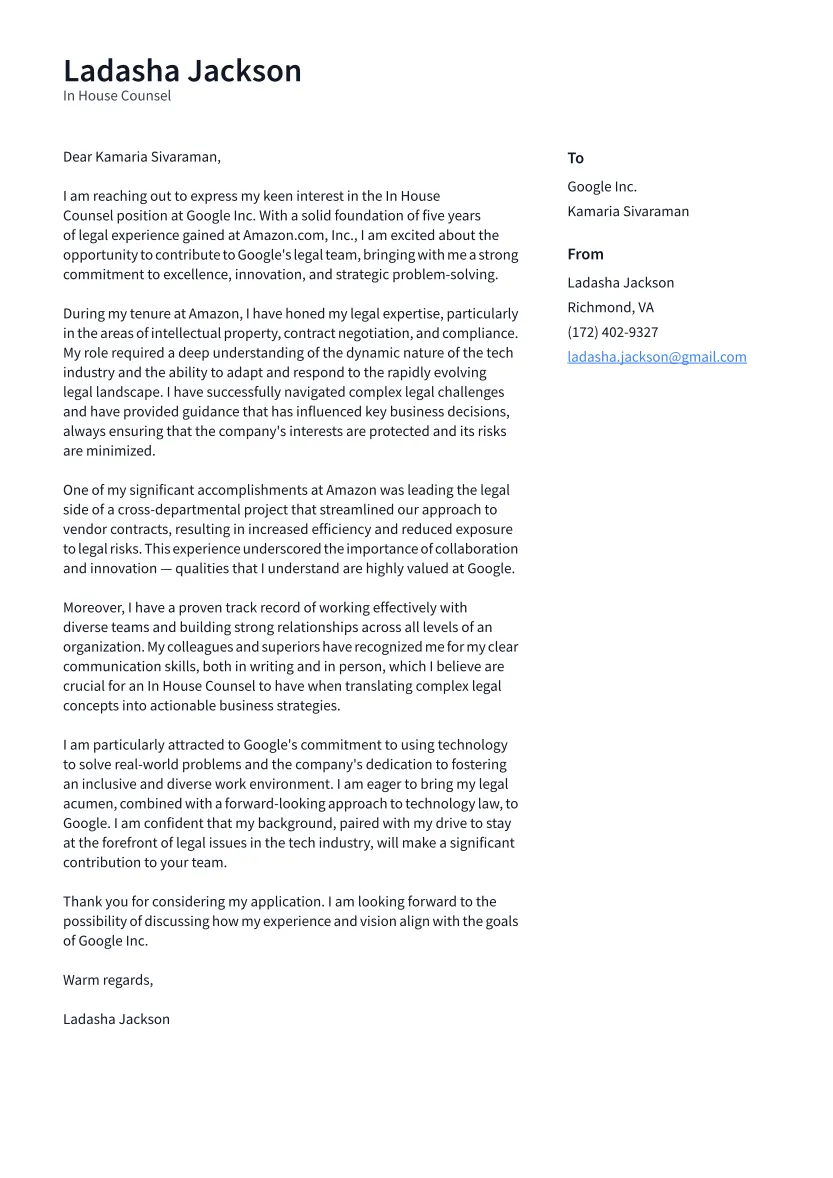
In addition to your legal expertise, highlight your soft skills to demonstrate your ability to work effectively with others and contribute to the company culture. Include skills like communication, problem-solving, leadership, teamwork, and time management. Provide examples of how you have used these skills in past roles. For example, if you’ve led a team, explain the steps you took to manage it and the outcomes achieved. If you have strong communication skills, describe situations where you have successfully conveyed complex legal concepts to non-legal professionals.
Avoiding Common Mistakes
Avoiding common mistakes is crucial for ensuring your cover letter leaves a positive impression. Carefully review your letter for errors and ensure it is polished and professional. Make sure that you are not making any of the mistakes that can easily get your application rejected.
Generic Templates
Avoid using generic cover letter templates that are not tailored to the specific job or company. Hiring managers can easily identify these, which shows a lack of interest and effort. Your cover letter should be personalized to demonstrate that you have done your research and are genuinely interested in the position. Customize each cover letter to align with the job description and the company’s values. This requires more effort, but it significantly increases your chances of making a positive impression.
Ignoring the Job Description
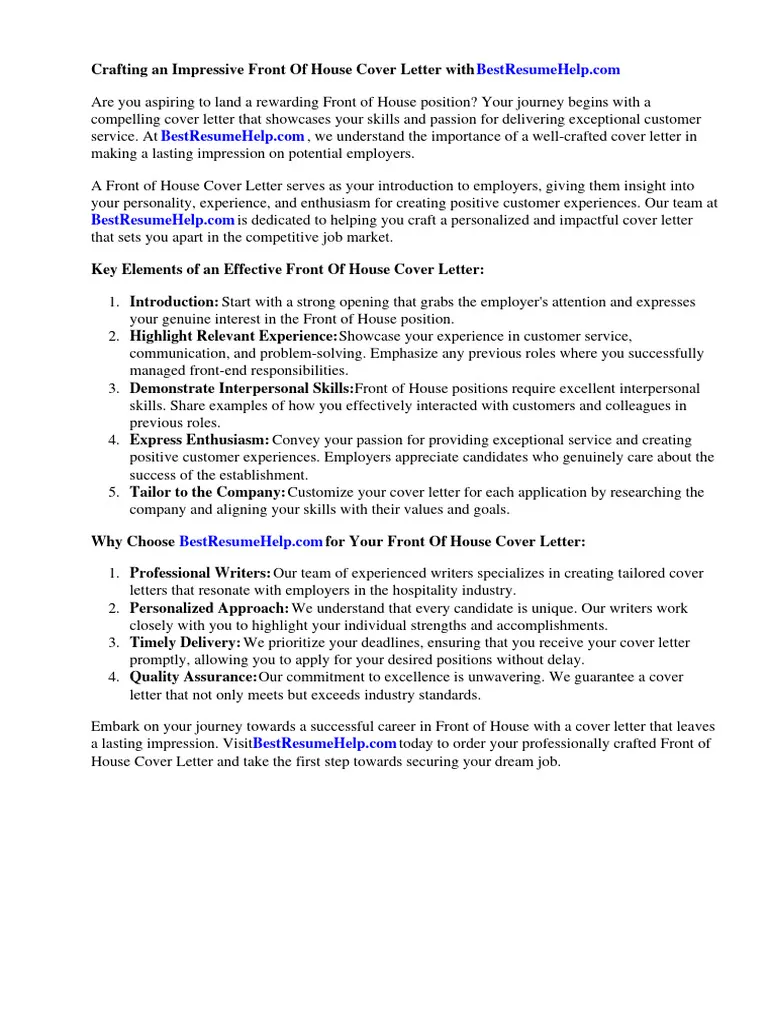
Carefully read and address each point in the job description. Failing to do so suggests you lack attention to detail and may not be a good fit for the role. Tailor your cover letter to highlight the skills and experiences that match the job requirements. Use the same keywords and phrases from the job description in your letter. Clearly demonstrate how your qualifications align with the responsibilities and expectations outlined in the job description. This shows the hiring manager that you have what it takes.
Typos and Grammatical Errors
Proofread your cover letter carefully to catch any typos, grammatical errors, and inconsistencies. These errors can damage your credibility and make you appear unprofessional. Use a grammar checker and ask someone else to review your letter for a fresh perspective. Ensure that your letter is clear, concise, and error-free. Make sure that you are using a good word processing tool and you are checking your work.
Formatting Your Cover Letter for Impact
The format of your cover letter affects its readability and impact. A well-formatted letter is easy to read, professional, and visually appealing. Choose a clean and professional format that aligns with the company’s style. This can improve the look and appeal of your letter.
Font and Readability
Use a professional font, such as Times New Roman, Arial, or Calibri, in a readable size (11-12 points). Avoid overly ornate fonts that are difficult to read. Ensure that your font choice is easy on the eyes and maintains a professional appearance. Ensure the font is easy to read, and you are following a format that works for you. Ensure a good font type for readability.
Length and Conciseness
Keep your cover letter concise, ideally one page in length. Avoid unnecessary details and focus on the most important information. Ensure that your writing is clear, and to the point. Get right to the point of what you are looking for and do not waste the reader’s time. Use brief paragraphs and concise sentences to convey your message efficiently. Focus on what is necessary and the most important information.
Using White Space Effectively
Use white space to break up your text and improve readability. Use margins, line spacing, and paragraph breaks to create visual separation. Avoid overcrowding your page. The more you improve your cover letter, the higher chance you will have of getting an interview. A well-formatted cover letter makes a positive impression and makes your letter easier to read.
